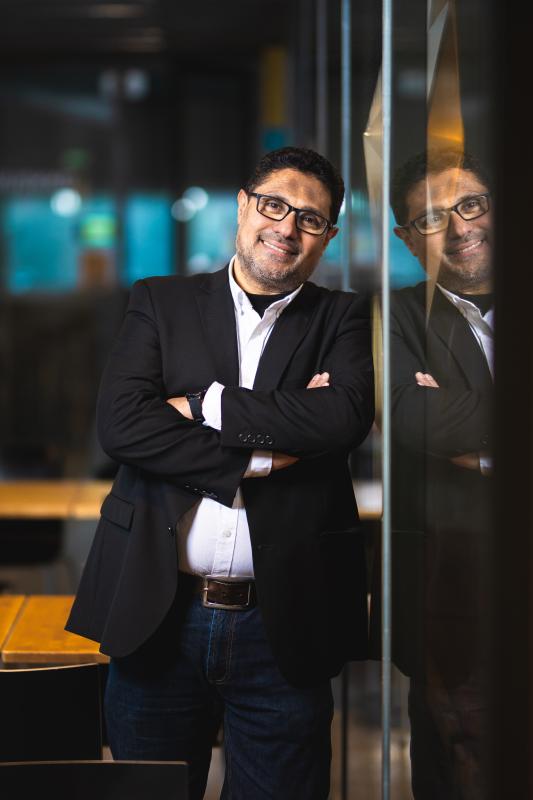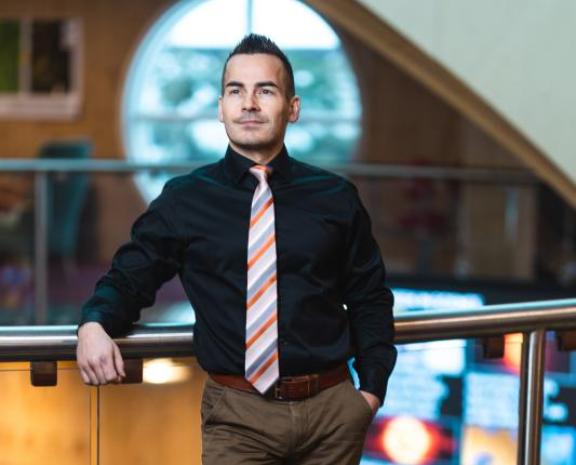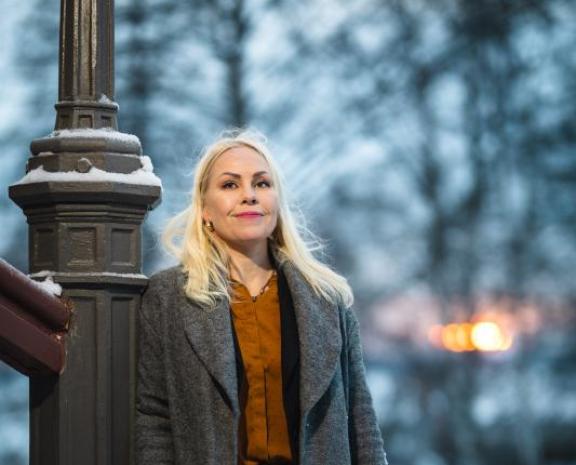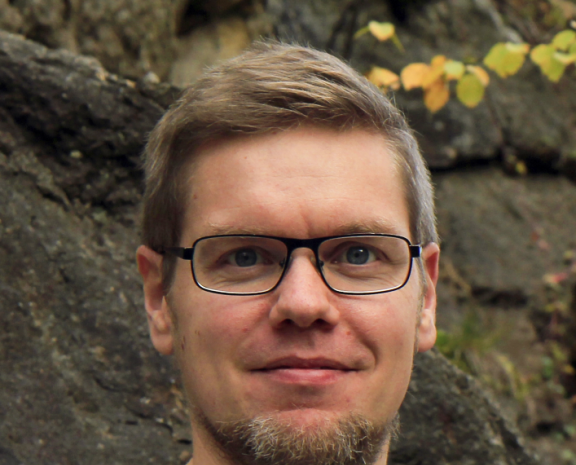
Mohammed came to Finland from Libya to study for a doctorate in Helsinki and ended up as a lecturer at the University of Vaasa. He hopes for bolder and broader cooperation between companies and universities. Mohammed believes that together we can build a better tomorrow by creating smarter systems and services that benefit society as a whole.
What are you researching right now?
Most of my research and teaching is related to applications of machine learning and artificial intelligence. I have also been working also on game theories, wireless networks, biotechnology, wireless automation and digitalisation.
Why is it important to study telecommunications engineering?
Telecommunication and especially wireless communication have become a fundamental part of all operations in human society. Any technical or nontechnical system consists of smaller entities. Without communication between those entities, the whole concept of the system will vanish. In today's digitalised world, telecommunication is one essential pillar in all ICT applications such as security and safety, energy plants, factories, banking, health systems, disaster management, and army operations. As you can see, digitalisation affects almost every aspect of life.
What inspired you to do research?
I am extremely interested in this amazing world. I have great respect for those whose life's work is the foundation of our current knowledge in physics, mathematics, social sciences and other disciplines. As a scientist, I learn something new every day, and I am also an active contributor to the advancement of knowledge. As a researcher, I understand that I know very little about a particular subject, and I am enthusiastic to learn more, no matter how long my career has been.
Which of your research findings would you highlight at the moment?
I would highlight the use of machine learning and artificial intelligence, for example in healthcare. One of my doctoral students has published several articles in top journals on how already available data in hospitals can be used to predict the stages of cancer with high accuracy. This information can be very useful in planning treatment. Similar applications of AI and machine learning have been applied in other fields, such as industry and business.
What is your advice to the business world?
Businesses should take wider advantage of new technological solutions related to digitalisation. I wish that companies in the Vaasa region would cooperate more with the University of Vaasa. Most of the current cooperation is mainly based on solving technical problems or improving performance. Our students and researchers could organise workshops and debates on new services and technologies for the future together with companies in the region. I believe that together we can create new systems and services for a more intelligent and better future.
I also hope that key players in society would collaborate more with universities to use the advanced tools of AI and machine learning to pinpoint problems and find more accurate models. Research in my field can also help predict potential future problems in society, for example problems that are connected to the age structure of society.
How has the job of a researcher changed?
Telecommunications engineering is evolving at a remarkable pace and new areas of research are constantly being discovered. Advances in telecommunications engineering impact people's everyday lives. In the last 20 years, the speed of data transmission over mobile networks has increased by a million times compared to the past. Thanks to market demands and ambitious researchers, we have a future of continuous development and almost endless work for researchers.
Where do you find strength and well-being at work?
I feel empowered when I see development in my students' skills. Feedback from students often makes me happy, but it also allows me to develop as a teacher.
Facts
Mohammed Elmusrati
- Assignment: Professor of telecommunications engineering in the School of Technology and Innovations. Works also as a programme manager of the new international master´s programme Sustainable Autonomous Systems (SAS) and is the head of the FiTech-5G Project at the University of Vaasa. Mohammed is also a visiting professor at Aalto University.
- Education: D.Sc. (Tech.), Aalto University, 2004
- Career: Lecturer at the University of Benghazi 1995-1999, employed at the University of Vaasa since 2004
- Research projects: Mohammed has three of his doctoral students who are working in the TULEVA project (funded by the European Regional Development Fund), INdoor navigation from CUBesAt Technology (INCUBATE) project (funded by the Technology Industries of Finland Centennial Foundation) , and Kvarkensat project (funded by the European Regional Development Fund ) in the Digital Economy platform. Mohammed is also contributing to the research activities of the Faculty of Medicine at the University of Helsinki and some research groups from Canada and Australia.


